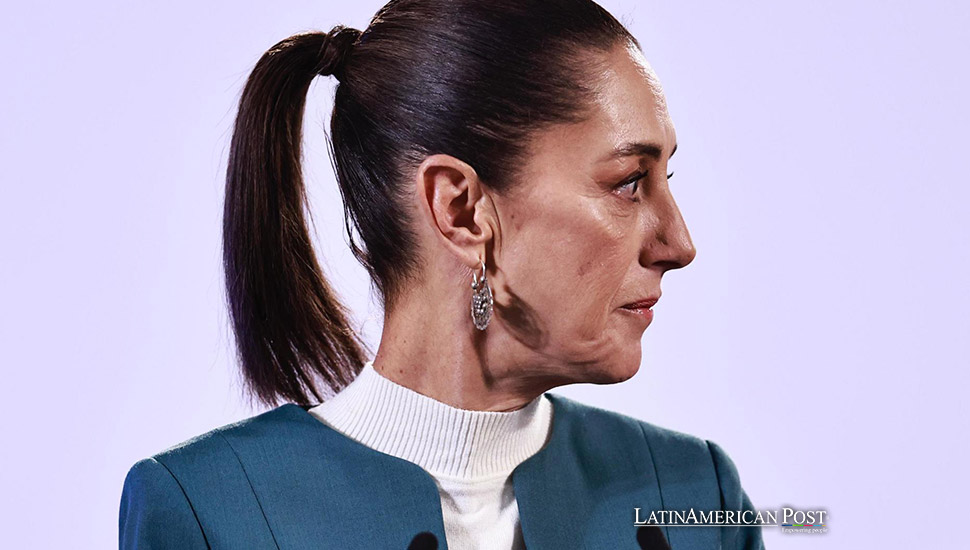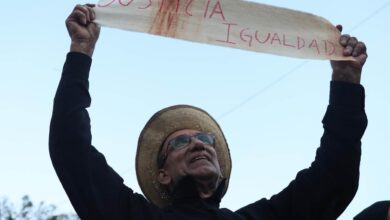Migrants Killed by Mexican Military in Mistaken Attack

Mexican President Claudia Sheinbaum has confirmed the deaths of four migrants from Egypt, El Salvador, and Peru after soldiers opened fire in Chiapas. The tragic incident, now under investigation, underscores growing concerns over the military’s role in border security.
Fatal Encounter in Chiapas
The recent shooting of migrants by the Mexican military has cast a shadow over the country’s border security policies. On October 1, a tragic mistake cost the lives of migrants from Egypt, El Salvador, and Peru. The incident, which took place in the southern state of Chiapas, occurred when Mexican soldiers mistakenly opened fire on two vehicles carrying 33 migrants. What the military perceived as a criminal threat turned into a deadly miscalculation that left four migrants dead and several others injured.
President Claudia Sheinbaum confirmed the nationalities of the victims during a press briefing, expressing sorrow for the tragedy. “They are from Egypt, El Salvador, and Peru,” she said, emphasizing that the government was committed to thoroughly investigating the circumstances that led to the fatalities.
The soldiers involved in the shooting, part of Mexico’s National Defense Secretariat (Sedena), are now in the custody of the Attorney General’s Office (FGR). Sheinbaum clarified that the government is determined to hold accountable those responsible, stating, “This must be investigated and punished.” She also noted that Mexico’s foreign ministry has already been in contact with the embassies of the victims’ home countries to provide necessary support to their families.
A Deadly Case of Mistaken Identity
According to the information provided by the Mexican military, the shooting happened in the evening between the municipalities of Villa Comaltitlán and Huixtla in Chiapas. The soldiers had mistaken the group of migrants for suspected criminals operating in the area. The soldiers fired on the two vehicles without warning, leaving four migrants dead at the scene. Twelve others were wounded, and two of the injured later died in the hospital.
Peru’s foreign ministry confirmed that one of the deceased was a Peruvian national, condemning the act in strong terms. The Peruvian government expressed outrage and demanded answers from Mexico, calling for a complete and transparent investigation into the killings.
President Sheinbaum highlighted the involvement of high-level officials in responding to the tragedy. She indicated that Interior Secretary Rosa Icela Rodríguez and Foreign Minister Juan Ramón de la Fuente are coordinating efforts with the embassies of Egypt, El Salvador, and Peru to assist the victims’ families. She assured that all necessary steps were being taken to prevent similar incidents from occurring in the future.
The Role of the Military in Migration Control
The incident in Chiapas has sparked a broader conversation about the increasing role of the Mexican military in migration control. Under the administration of former President Andrés Manuel López Obrador (AMLO), the military’s presence at the border grew significantly. López Obrador entrusted the military with various tasks, including enforcing immigration policies and conducting security operations in Mexico’s most volatile regions. By the end of his presidency in 2024, over 36,000 military personnel had been assigned to immigration duties across the country.
However, this militarization of border control has not come without controversy. Human rights organizations have long criticized the military’s involvement in tasks that traditionally fall under civilian agencies. Many argue that the army, trained for combat and national defense, is not equipped to handle the complexities of migration and humanitarian crises at the border. The tragic deaths in Chiapas have reignited these concerns, with critics pointing to the incident as a clear example of the dangers of relying on soldiers for border enforcement.
President Sheinbaum reiterated the need for proper accountability and oversight of military actions in response to the tragedy. “This cannot happen again,” she said, emphasizing that necessary measures are being implemented to prevent future incidents. Sheinbaum instructed Serena’s General Secretary, Ricardo Trevilla, to ensure full compliance with the investigation, signaling a commitment to justice and transparency.
A Call for Justice and Accountability
The Attorney General’s Office has taken over the investigation, and President Sheinbaum stressed that it will not be left solely to the military police. “It’s not just the military police that needs to conduct the investigation, but the Attorney General’s Office,” she said, confirming that all soldiers involved have been placed at the disposal of federal prosecutors. The FGR will now determine who was responsible for the fatal shootings and whether additional parties were involved.
This level of scrutiny is essential, given the gravity of the situation. International observers, as well as the families of the victims, are closely monitoring the investigation’s progress. The Peruvian government has already expressed its expectation for swift justice, and the governments of Egypt and El Salvador have echoed similar sentiments.
While the Mexican government has been quick to initiate an investigation, the incident has highlighted deeper structural issues. Many are now calling for a re-evaluation of the military’s involvement in migration control and border security. Civil society organizations have urged the government to reconsider the use of force in dealing with migrants and to implement reforms that prioritize the safety and human rights of those fleeing violence and poverty.
Moving Forward: A Test for Sheinbaum’s Administration
For President Sheinbaum, this tragedy marks one of the first major challenges of her administration, which began after her election in 2024. The handling of the incident and the outcome of the investigation will undoubtedly shape perceptions of her leadership, both domestically and internationally.
The event has also brought attention to the broader issue of migration in Mexico, particularly along its southern border with Guatemala. Chiapas, a key transit point for migrants from Central and South America, has become a flashpoint for violence as the Mexican government grapples with how to manage the influx of people. This incident may push Sheinbaum’s administration to reconsider the strategies inherited from the previous government and seek new solutions to address the challenges posed by migration.
As Mexico continues to face pressure from both the United States and Central American governments to curb migration flows, Sheinbaum’s response to this crisis will be critical. Her administration’s ability to balance security concerns with the need for humane treatment of migrants will be a defining issue in the coming months.
Also read: Mexico’s Absence Undermines Latin America’s Fight Against Cartel Violence
The shooting in Chiapas has sent shockwaves across the region, and as the investigation unfolds, it remains to be seen how Sheinbaum’s government will respond to the broader implications of this tragedy. For the families of the victims, justice cannot come soon enough. The world will be watching to see if Mexico can deliver it.





